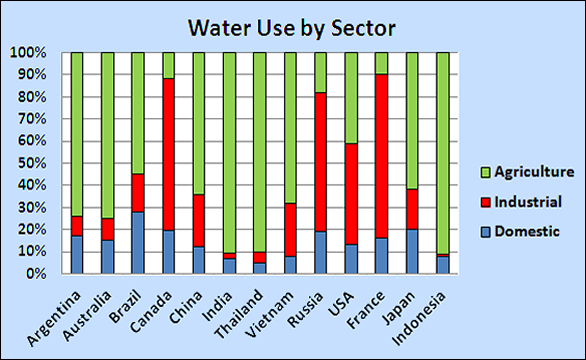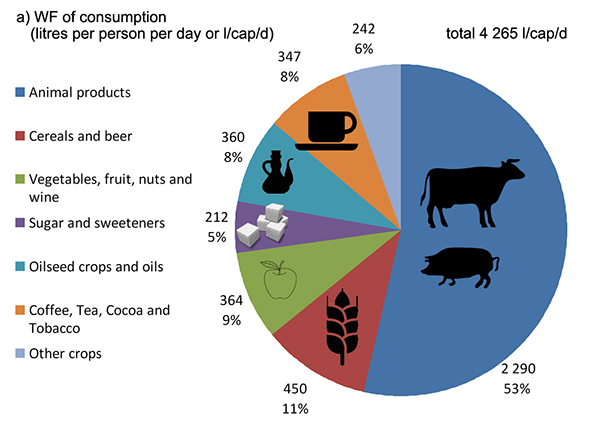How does agriculture affect water resources?
1 Answer
Agriculture is an industry that uses a large amount of freshwater.
Explanation:
Agriculture is an industry that uses a large amount of water. Globally, it is estimated that 60-75% of water humans used goes towards agriculture. Much is this water is used to irrigate crops.

This water is often not used sustainably. In many cases, crops are grown in climates that are unsuitable and require far more resources because of this. Many crops are grown in areas where they require artificial irrigation that would not occur naturally in order for production to succeed.
Management practices may allow for a company to use a vast amount of water on crops, and this water then combines with pesticides and herbicides and anything else in the soil and on the crops. This combination of water and chemicals enters the environment and is rarely treated or refused afterwards.
Production of beef and dairy for human consumption also use a significant amount of water. You can see the amount of water used to grow an item here. Many don't think about the amount of water it takes to raise a cow or other livestock, but the amount is substantial.

Thus, in general agricultural practices use a great deal of our freshwater and this use is often not sustainable given current practices and limited regulation globally.
The United Nations published a thorough report in 2008 on water use and resources, the summary of which can be read here.
This website includes a number of pdfs at the bottom of the page with more information on water use and agriculture.

